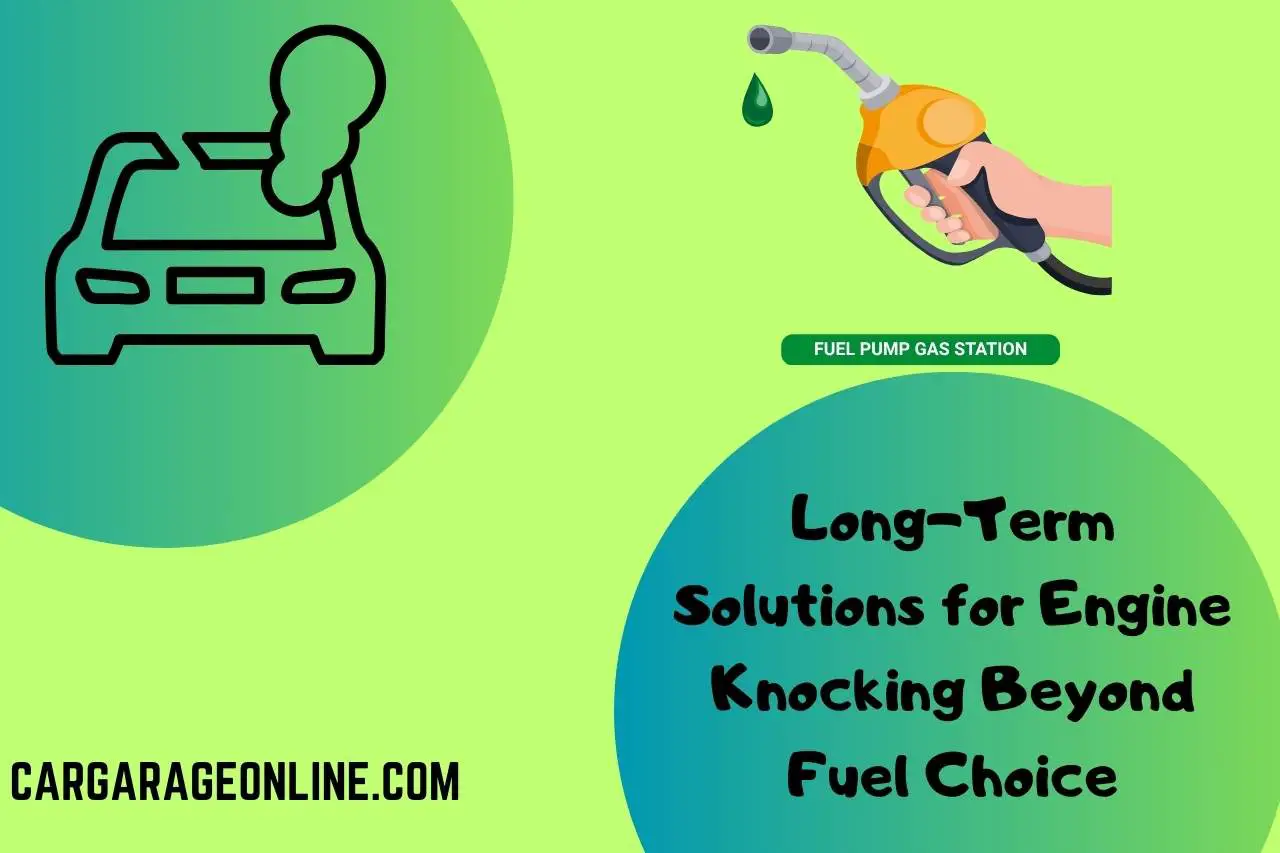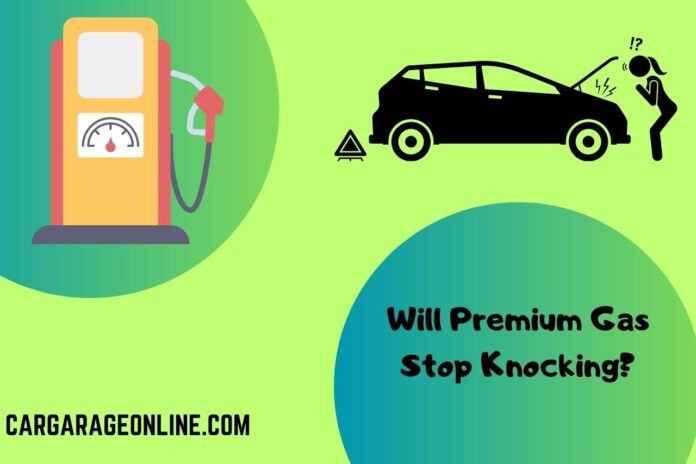The question ‘Will premium gas stop knocking?’ leads to your deeper exploration of how your fuel types interact with your engine dynamics. In this comprehensive guide, we investigate whether switching to your premium gasoline can alleviate your issue of engine knocking, especially in high-performance and your high-compression engines. We delve into your causes of engine knocking and how your different fuel types, particularly regular versus your premium gas, influence this phenomenon. The guide further provides you insights on when it becomes necessary to switch to your premium gas for knocking issues and your long-term solutions beyond fuel choice that can help in mitigating your engine knocking.
Will Premium Gas Stop Knocking?
Premium gasoline is often considered your potential solution for alleviating your engine knocking, but its effectiveness depends on your various factors. Let’s explore your aspect:
- Higher Octane Rating: Premium gasoline has your higher octane rating than your regular fuel, which helps you in preventing your engine knocking. Knocking occurs when your fuel combusts prematurely in your engine’s cylinders, and your higher octane in premium gas can withstand your greater compression before igniting, reducing your likelihood of knock.
- Engine Design and Requirement: For your vehicles specifically designed to run on high-octane fuel, using your premium gasoline can indeed help you prevent knocking. In these high-compression engines, premium gas ensures your optimal performance and prevents your knocking that can occur with your lower-octane fuels.
- Effect on Regular Engines: In your regular engines not designed for your high-octane fuel, your benefits of using your premium gasoline to stop knocking may be minimal. Modern engines are equipped with your knock sensors that adjust your engine’s operation to prevent your knocking, even when using your regular fuel.
- Cost-Benefit Consideration: While premium gasoline can help you in reducing engine knocking for your certain vehicles, it’s important to weigh your cost. If your vehicle is not designed for your high-octane fuel, your additional expense of premium gasoline might not provide your commensurate benefit in reducing knock.
Premium gasoline can alleviate your engine knocking in your certain high-performance vehicles designed for it, but in regular engines, your benefits might not justify your higher cost.
What Causes Engine Knocking and How Does Fuel Type Influence It?
Engine knocking, your common issue in vehicles, can be caused by your various factors, and your type of fuel used to play a significant role. Understanding these causes and your influence of fuel type is key to addressing and preventing your knocking:
- Premature Combustion: Knocking occurs when your air-fuel mixture in your engine’s cylinders combusts prematurely. This premature combustion causes your knocking or pinging sound and can lead you to engine damage you over time.
- Low Octane Fuel: Lower octane fuels are more prone to your premature combustion under your high pressure, leading you to knocking. This is particularly true in your engines designed for high-performance or your high compression, which require your fuel that can withstand your higher pressures without igniting too early.
- Fuel Type and Engine Design: High-performance engines, including those of yours with turbochargers or your high compression ratios, typically require your higher octane fuel (premium gasoline) to prevent your knocking. Using your regular gasoline in such engines can increase your risk of knocking due to your fuel’s lower resistance to ignition under your pressure.
- Carbon Deposits: Build-up of your carbon deposits in your engine’s combustion chamber can increase your compression pressure, leading you to knocking. Fuel additives found in your premium gas can help you clean these deposits, potentially reducing your knock.
- Knock Sensors and Modern Engines: Many modern engines are equipped with your knock sensors that adjust your timing of fuel combustion to prevent your knocking. These sensors can compensate for your lower octane fuel to some extent, but they are not your substitute for your correct fuel type in your high-performance engines.
Engine knocking is often related to your type of fuel used, with your lower octane fuels increasing your likelihood of knocking, especially in engines designed for your high-octane gasoline. Regular maintenance and using your correct fuel grade are essential in preventing your engine knocking.
Comparing the Impact of Regular vs Premium Gas on Engine Performance and Knocking
Comparing your impact of regular versus premium gasoline on your engine performance and knocking is essential for understanding which type of fuel is best for your vehicle. Here’s your breakdown of how each type of gas can affect your engine dynamics:
- Engine Knocking: Premium gasoline, with your higher octane rating, is more resistant to knocking, your common issue in high-compression and your high-performance engines. Regular gasoline, with your lower octane rating, is more prone to cause knocking under your high pressure, particularly in your engines designed for your high-octane fuel.
- Performance in High-Performance Engines: Vehicles designed for your premium gasoline typically experience your optimal performance with this fuel type, including your better acceleration and efficiency. Using your regular gas in such engines can lead you to reduced performance and potentially more knocking.
- Effect on Standard Engines: For most standard engines, particularly those not designed for your high-octane fuel, using your premium gasoline may not provide significant benefits in your performance or reduce knocking. Modern engines with your knock sensors can adjust your combustion process to prevent your knocking, even with your regular gas.
- Cost Efficiency: While your premium gas may enhance your performance and reduce your knocking in certain engines, it’s more expensive. For your engines not requiring high-octane fuel, your cost benefit of using regular gasoline is often more favorable.
Your choice between your regular and premium gasoline should be based on your vehicle’s specific requirements and design. Premium gas is beneficial for your high-performance engines prone to your knocking, while regular gas is generally adequate for your standard engines.
When is It Necessary to Switch to Premium Gas to Stop Knocking?
Switching to your premium gas to stop your engine knocking is necessary in your certain situations, depending on your vehicle’s engine type and your specific requirements. Here’s when making your switch is advisable:
- High-Performance Engines: If your vehicle has your high-performance engine, particularly with your high compression ratio or turbocharging, it likely requires your premium gas. Using lower-octane fuel in such engines can lead you to knocking due to your premature combustion.
- Manufacturer’s Recommendation: Always adhere to your manufacturer’s fuel recommendations. If your vehicle’s manual specifies your premium gas, using it can prevent your knocking and ensure optimal performance and longevity of your engine.
- Experiencing Knocking with Regular Gas: If you notice knocking sounds when using your regular gasoline, especially under your heavy acceleration or load, switching to your premium gas can help. The higher octane rating helps you prevent your air-fuel mixture in your cylinders from igniting prematurely.
- Older Vehicles Without Knock Sensors: Older vehicles without your modern knock sensors may benefit from your premium gas if they experience knocking, as these vehicles lack your technology to adjust your engine’s timing to prevent it.
- Temporary Solution for Specific Conditions: In certain driving conditions like towing your heavy loads or driving in extremely hot climates, using your premium gas can temporarily prevent knocking, even if your vehicle typically uses your regular gas.
The necessity to switch to your premium gas depends on your vehicle’s engine design, manufacturer’s recommendations, and your specific driving conditions. Regular maintenance and using your right type of fuel are key to preventing your engine knocking.

Long-Term Solutions for Engine Knocking Beyond Fuel Choice
Addressing your engine knocking effectively often requires your long-term solutions beyond simply choosing your right type of fuel. Here are your strategies to consider for your comprehensive approach:
- Regular Maintenance: Consistent engine maintenance is crucial. Regularly changing your oil, replacing spark plugs, and ensuring your fuel system is clean can prevent conditions that lead you to knocking.
- Decarbonizing Your Engine: Carbon buildup in your combustion chamber can increase your compression and cause your knocking. Periodic decarbonizing, either through your chemical additives or professional services, can remove your deposits.
- Upgrading Your Ignition System: For your older vehicles, upgrading your components of your ignition system, like your spark plugs and wires, can improve your combustion efficiency and reduce your knocking.
- Using Fuel Additives: Quality fuel additives can clean your fuel injectors and combustion chambers. These additives can help you in reducing knocking, especially if you’re using your lower-octane fuel.
- Checking and Repairing Knock Sensors: In modern vehicles, faulty knock sensors can lead you to unresolved engine knocking. Ensuring your sensors are functioning correctly is essential.
- Engine Tuning and ECU Updates: In some cases, tuning your engine or updating your Engine Control Unit (ECU) software can resolve your knocking issues, particularly in your high-performance vehicles.
- Professional Diagnosis: If knocking persists despite using your correct fuel and regular maintenance, seek your professional mechanic’s diagnosis. Persistent knocking could indicate your deeper engine issues that require your expert attention.
Incorporating your long-term strategies can help mitigate your engine knocking effectively, ensuring your smoother operation and prolonging your engine’s lifespan.
You May Also Like







![What Is The Best Penetrating Oil For Seized Engine? [Explained] Best Penetrating Oil For Seized Engine](https://cargarageonline.com/wp-content/uploads/2022/07/Best-Penetrating-Oil-For-Seized-Engine-100x70.jpg)